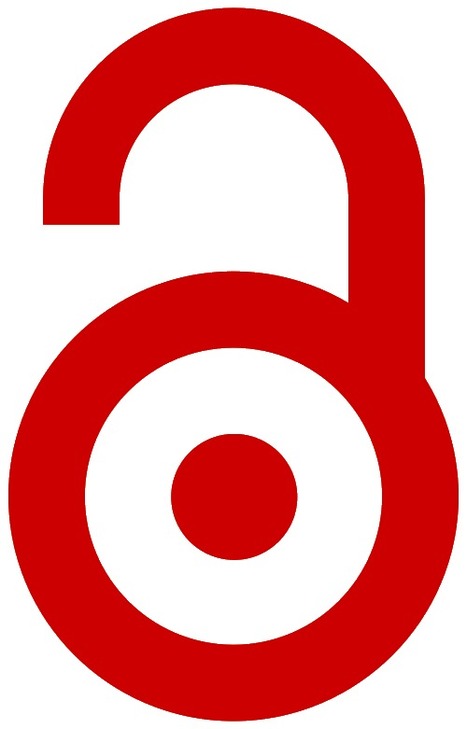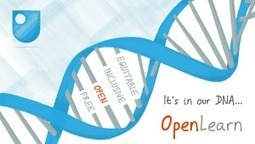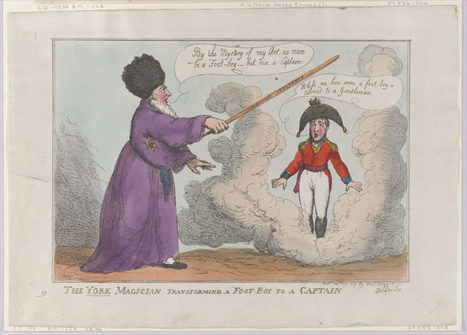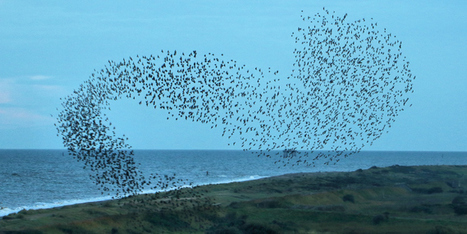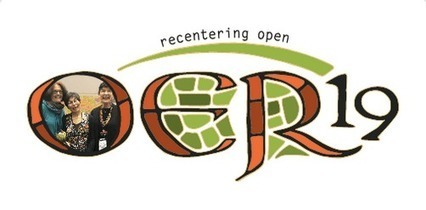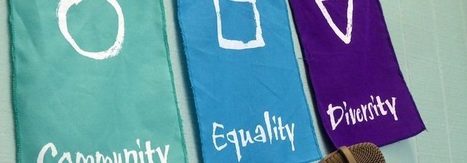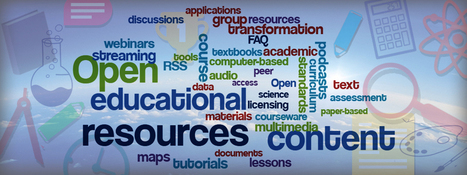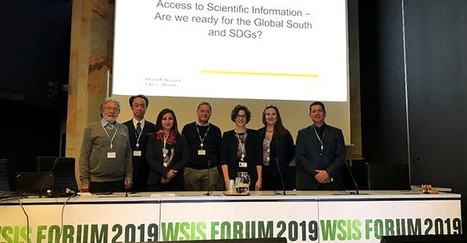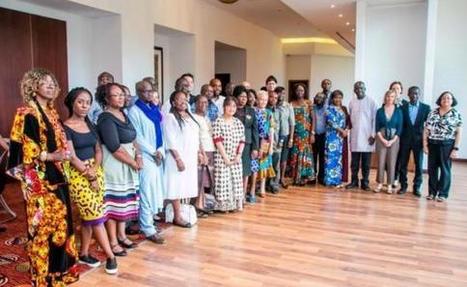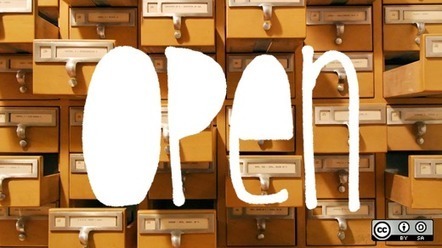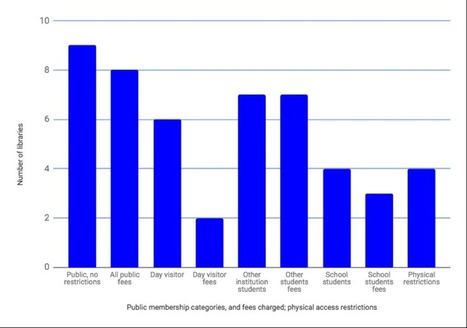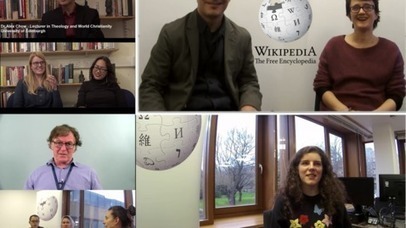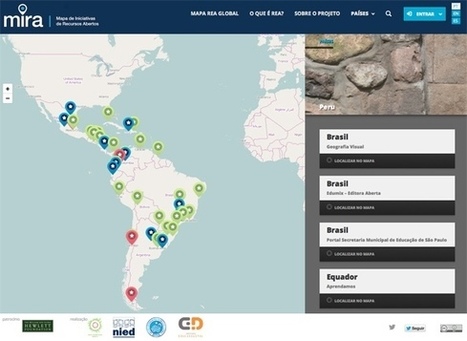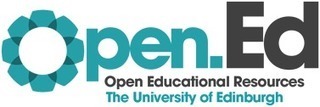This Monday, October 20 marks the first day of Open Access Week, an international event that celebrates the wide-ranging benefits of enabling open access to information and research–as well as the dangerous costs of keeping knowledge locked behind publisher paywalls.
Get Started for FREE
Sign up with Facebook Sign up with X
I don't have a Facebook or a X account

| Tags |
|---|
 Your new post is loading... Your new post is loading...
 Your new post is loading... Your new post is loading...
Librarians should have a role in promoting open access content. The best methods and whether they are successful is a matter of heated debate. Take for an example a recent post by Micah Vandergrift...
Libraries and funding agencies are finally flexing their muscles against journal paywalls. Authors should follow suit.
A PERSON COULD BE FORGIVEN for believing 20 years ago that the internet would soon revolutionize academic publishing. With the emergence of the world wide web, it suddenly became possible for academic publishers to disseminate scholarly work at the click of a button — at a fraction of the cost of printing and mailing hard-copy journals. Recognizing the opportunity, many scholars and librarians began to advocate a new, open access model of academic publishing, in which research articles are made freely available online to anyone who wants them, not just affiliates of colleges or universities. The result would be a true online “public library of science” — which, as it so happens, also became the name of one of the first publishers to embrace the model. As a new librarian in the early 2000s, I believed passionately in the cause of open access and worked hard to bring it about. But almost two decades later, the movement has made only slight gains at the margins, and the traditional subscription-based model remains firmly entrenched in academia. For the university libraries who bear most of the subscription costs, it is as though the internet revolution never happened: Since 1986, research library expenditures have grown at more than four times the rate of inflation, with journal prices showing the greatest price jumps of all.
What follows is a basic primer on transformative agreements and their characteristics and components.
As of April 2019 the number of preprint databases registered on ROAR (Registry of Open Access Repositories) database reached 4733. In some disciplines, preprints have become commonplace, especially those in which competition is intense to establish the priority of research. Preprints are relatively inexpensive and they allow for the almost immediate publication of research findings, which have led some to argue that they represent the most viable future for scholarly publishing. However, unlike traditional scholarly publications, they have not been peer reviewed.
#OER 19 the conference that, according to the welcome message in the programme “goes beyond hero narratives”. I wasn’t exactly sure what that the conference co-chairs Catherine Cronin and Laura Czerniewicz actually meant by that phrase when I read it, but now a few days after the conference I think I do.
The stories I heard, the narratives were not of the great, I am, look and me and do what I do kind. They were diverse, challenging, not perfectly boxed solutions. They were the narratives of humanity, the narratives of the forgotten and the unrepresented, the narratives of critical hope.
Presented at the OER19 conference in Galway, Ireland, April 2019
The Long View: Changing Perspectives on OEROER18 Conference keynote by Lorna M. Campbell. In this talk Lorna explores how the OER Conference has examined and renegotiate what “OER” means over the years, and how this has reflected her own journey as an open education practitioner. She also looks at what we can do to ensure that open education is diverse, inclusive and participatory, and using innovative examples from the University of Edinburgh, she explores how we can engage students in open education practice and the co-creation of OER.
Scholarly publishing takes place in an institutional arena that is opaque to its practitioners. As readers, writers, reviewers, and editors, we have no clear view of the system within which we’re working. Researchers starting their careers receive (if they’re lucky) folk wisdom and mythology handed down from advisor to advisee, geared more toward individual success (or survival) than toward attaining a systemic perspective. They may learn how to get their work into the right journals or books, but often don’t learn why that is the outcome that matters for their careers, how the field arrived at that decision, and what the alternatives are – or should be. Gaining a wider perspective is important both for shaping individual careers and for confronting the systematic problems we face as a community of knowledge creators and purveyors.
These days, students and their parents expect information to be immediately available. And while the internet has a wealth of resources, users are rightfully not always confident in their accuracy. Furthermore, many works are protected by copyrights, which prevent them from appearing online in their entirety. So educators must find creative ways to meet students’ expectations of easily accessible digital resources while still adhering to copyright laws and strict budgets. As a result, open educational resources (OERs) are gaining popularity among teachers and students. Here we look at five questions you may have as you evaluate open educational resources to help you consider the best way to provide materials to use in your classrooms.
From
zenodo
Key Points
We intend this book to act as a guide writ large for would-be champions of OER, that anyone—called to action by the example set by our chapter authors—might serve as guides themselves. The following chapters tap into the deep experience of practitioners who represent a meaningful cross section of higher education institutions in North America. It is our hope that the examples and discussions presented by our authors will facilitate connections among practitioners, foster the development of best practices for OER adoption and creation, and more importantly, lay a foundation for novel, educational excellence.
If you've considered learning a new language to open up a new realm of reading, you could do much worse than Arabic. Though its mastery may demand a considerable amount of time, it repays the investment as the language of not just a country but an entire region of the world, and a region with a deep textual history at that. Anyone interested in becoming a student of Arabic, casually or seriously, can get their start at our collection of Arabic lessons available free online, and when up to speed on reading might consider a visit to Arabic Collections Online (ACO), a digital library of Arabic-language texts now boasting 10,042 volumes across 6,265 subjects, all of them also available free online. |
I’ve been keeping out of the debate around the OpenEd conference panel (Rajiv has an excellent analysis of it, if you want to catch up), partly because it seemed a very N. American discussion, but also partly because I found it, well, boring. But then I thought about why it bored me, and that was, well, interesting (perhaps).
Saide’s OER Africa initiative is delighted to partner UNESCO IITE in putting together this important publication. This builds on a long relationship between the organizations, based on our mutual commitment to enabling successful open learning for all, and on our belief in the potential of open educational resources (OER) in pursuing those ends. Unfortunately, the claims of OER in relation to equity, diversity and inclusion, as well as in improving pedagogy cost effectively, remain largely untested.
In Inclusive Knowledge Societies, people have ready access to information and communications resources, in languages and formats that suit them, and possess the skills to interpret and make use of them. Within this framework, promoting access to scientific scholarship (in the broadest sense) has remained a central challenge to most Member States. UNESCO, with its partners, continues to pursue this objective through its programmes on Open Science and Open Access as well as in partnership with other key actors .
A while ago I asked if any writers wanted guidance on finding free – and most importantly, legal – access to academic research online. About 190+ respondents said yes. So belatedly, here’s some advice on finding research without paying for it. Writers need access to academic research for lots and lots of reasons. When I started working on Empire of Sand I wanted to use India’s Mughal Empire for inspiration, which meant I specifically needed to research the history, culture and politics of that era and region of the world.
From
eifl
Libraries and regional and national Research and Education Networks (RENs) in West and Central Africa have endorsed a template for a Terms of Reference (ToR) for joint activities through which the library and REN communities can advance open science and open access in the region.
Four years ago, I interviewed Nathan Currulla, co-founder of ByWater Solutions, a major services and solutions provider for Koha, a popular open source integrated library system (ILS). Since then, I've benefitted directly from his company's work, as my local Chautauqua–Cattaraugus Library System in western New York migrated from a proprietary software system to a ByWater Systems' Koha implementation.
Introduction. Open access to digital research output is increasing, but academic library policies can place restrictions on public access to libraries. This paper reports on a preliminary study to investigate the correlation between academic library access policies and institutional positions of openness to knowledge.
OER18: Open to All 9th annual conference for Open Education research, practice and policy18 – 19 April 2018, Bristol, UK OER18 turned the focus on one of the often-cited benefits of ‘open’ – the promise of inclusivity. How do the resources, methods and projects that make up Open Education support making education available to all? As a movement over 15 years old, has Open Education made an impact – on learners, on society and on education? What can we do to to support learning in the open – and how can we use open to support learning? The conference was chaired by academic and Open Education researcher Vivien Rolfe, alongside Wonkhe Associate Editor David Kernohan
The discussions around Plan S are voluminous. On 8 February 2019, the opportunity to provide feedback on Plan S closed. We have been attempting to maintain a list of commentary and news stories on Plan S at the end of one of our blogs: Most Plan S principles are not contentious. This has now grown so large we have moved the list into this dedicated blog. We will continue to try and keep it up to date – please let us know if we have missed anything that should be added. The discussions around Plan S are voluminous. On 8 February 2019, the opportunity to provide feedback on Plan S closed.
We present an analysis of 50 repositories for educational content conducted through an "audit system" that helped us classify these repositories, their software systems, promoters, and how they communicated their licensing practices. We randomly accessed five resources from each repository to investigate the alignment of licensing information between the resources themselves, metadata pages and overall site policies. We identified a high level of incongruity that could lead to a limited impact in OER use and reuse. We discuss the lack of guidance in implementation of such repositories, particularly to those who do not have wide institutional support to implement such systems. We finalize with a critical discussion on the emphasis given to licensing in the OER movement, and how it may be an evidence of a clash between the social and legal commons.
A collection of open policy resources that the Open.Ed service has developed and contributed to. All resources have been released under open licence and are available for re-use with attribution.
Whilst is is possible for an individual to quickly make their own materials open by hosting them on the web through their own website or through a community wiki or 'shared space' it is important to consider a range of issues affecting release. Most individuals have some connection to an institution and may need to consider issues such as ownership, licencing and branding of learning materials produced for enrolled students.
Feedback from the larger publishers on the Guidance on the Implementation of Plan S reflects many of the themes seen in the feedback overall, including support for open access and concern for diversity and inclusion in publishing. Notable, however, is their commentary on the current range hybrid models for journal publishing. Their feedback indicates no intention of abandoning hybrid models, a pathway they characterize as successfully meeting market demands and fostering growth in open access publishing. |


